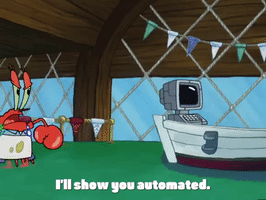I must call out though, that how these wonderful CX automation initiatives of the days gone by were different from what we understand of the term today. It is the intent, infrastructure support and proliferation of the internet that has separated the expression of CX automation of the present day from what it used to be in the past. It has acquired a new identity, a new name. Early CX automation undertakings were purely motivated by 'cost saving'. Yes, it was marketed as 'customer empowerment' but everyone working in both telecom and banking in the early days knew that it wasn't the case.
The term "Self-help", in the present day, doesn't invoke the same kind of emotions. "CX automation" is in vogue now and rightfully so. There is a world of difference in the technology landscape, computing capabilities, and general acceptance of the 'digital way of life" among end-users.
CX automation is a multi-billion industry today, we have to thank SaaS for it. The spectacular success that Freshworks, Zendesk and Zoho got has renewed the interest of capital in products that promise to automate customer-facing processes across a variety of industries. Advancements in cognitive technology, conversational Artificial Intelligence, and desktop automation have completely changed the scene. The ecosystem is fully ready to cut over to the new: 750 million connected smartphones beaming in India alone, the internet load for a day is cheaper than a decent cup of coffee (of course at telecom's peril) and there is growing interest in the industry to go fully automated. Capital, like it, always does is honouring the mood of the market. As we know from our economics lessons: capital and growth follow each other in a circle.
This change will cause massive displacement of low/semi-skilled professionals. The problem is that less than 5% of customer experience professionals today, truly understand the ways in which the new beast is to be tamed. That I am afraid is going to push the customer services industry (BPOs) to relive what banking when through in early 1980-90 ties, when banking embraced computers and they had to send nearly 70% of their workforce home (early retirement) because they just couldn't keep up with the machine.
There is still time to learn and adapt - the question is, will the BPO industry act in time? Your guess is as good as mine.





